«The Marchioness» of the House of Colonels / «De markiezin» van het Huis van Kolonels
August: for the Canaries a month of drought during summer. For the island Fuerteventura especially, drought is a recurring problem throughout its history. (For Dutch scroll down!)
To help the people of Fuerteventura survive these times of drought, a certain women played a special role: Maria Nieves Manrique de Lara y del Castillo (1844-1921), or «La Marquesa». She was a daughter of the last colonel living in the famous House of Colonels in La Oliva, Fuerteventura. She was the last inhabitant of the house, a house that knows a history of repression of its inhabitants by its dominant military regime by the colonels. However, Maria de las Nieves turned her attention to the poor and unfortunate.
In times of drought, she shared the water present in the well of the house with the inhabitants of La Oliva. She provided work for so many unfortunates by cultivating the surrounding land into farms and initiating the construction of (religious) buildings. She used part of the House as a school for children. Even during the harshest times she organised events to help distract the population of its problems. She hosted musical evenings and carnival festivities.
Maria de las Nieves gave the House of the Colonels a new definition: a house of social importance. This all did not come easy for her: her father and husband died when she was young, and as a widow on Fuerteventura she had very few rights. She is a prime example of a «Fuerteventurian» woman who fought ‘invisible walls’ and succeeded.
Source: «Arte, Sociedad y Poder: La casa de los Coroneles», 2009.
This project «Los Muros Invisibles» is possible thanks to the Canarian Institute for Cultural Development and the Government of the Canary Islands.
Follow our website and social networks (Instagram & Twitter) for more information about the progress of our project ‘The Invisible Walls’.
~~~
Augustus: voor de Canarische Eilanden een maand van droogte tijdens de zomer. Vooral voor het eiland Fuerteventura is droogte een terugkerend probleem in haar geschiedenis.
Om de mensen van Fuerteventura te helpen deze tijden van droogte te overleven, speelde een bepaalde vrouw een speciale rol: Maria Nieves Manrique de Lara y del Castillo (1844-1921), of «La Marquesa». Ze was een dochter van de laatste kolonel die in het beroemde «Huis van de Kolonels» woonde in La Oliva, Fuerteventura. Zij was de laatste bewoonster van het huis, een huis dat een lange geschiedenis kent van onderdrukking van de bewoners van La Oliva en Fuerteventura, door het dominante militaire regime dat door de kolonels in stand werd gehouden. Deze laatste bewoonster van het huis, Maria de las Nieves, richtte haar aandacht echter op de armen en ongelukkigen.
In tijden van droogte deelde ze het aanwezige water in de put van het huis met de bewoners van La Oliva. Ze zorgde voor werk door de omliggende grond van het huis tot akkers te bewerken en initieerde de bouw van (religieuze) gebouwen. Ze richtte een deel van het huis in als school voor kinderen uit La Oliva. Zelfs in tijdens van de zwaarste schaarste organiseerde ze evenementen om de bevolking af te leiden van de aanwezige problemen. Ze organiseerde muziekavonden en carnavalsfestiviteiten.
Maria de las Nieves gaf het Huis van de Kolonels een nieuwe definitie: een huis van maatschappelijk belang. Dit was echter geen makkelijke transitie: haar vader en echtgenoot stierven toen ze jong was, en als weduwe op Fuerteventura had ze weinig rechten en mogelijkheden. Ze is een goed voorbeeld van een ‘Fuerteventuriaanse’ vrouw die tegen ‘onzichtbare muren’ vocht en daarin slaagde.
Bron: «Arte, Sociedad y Poder: La casa de los Coroneles», 2009.
Dit project «Los Muros Invisibles» is mogelijk dankzij de hulp van het Canarische Instituut voor Culturele Ontwikkeling en de regering van de Canarische Eilanden.
Volg onze website en sociale netwerken (Instagram & Twitter) voor meer informatie over de voortgang van ons project ‘De Onzichtbare Muren’.


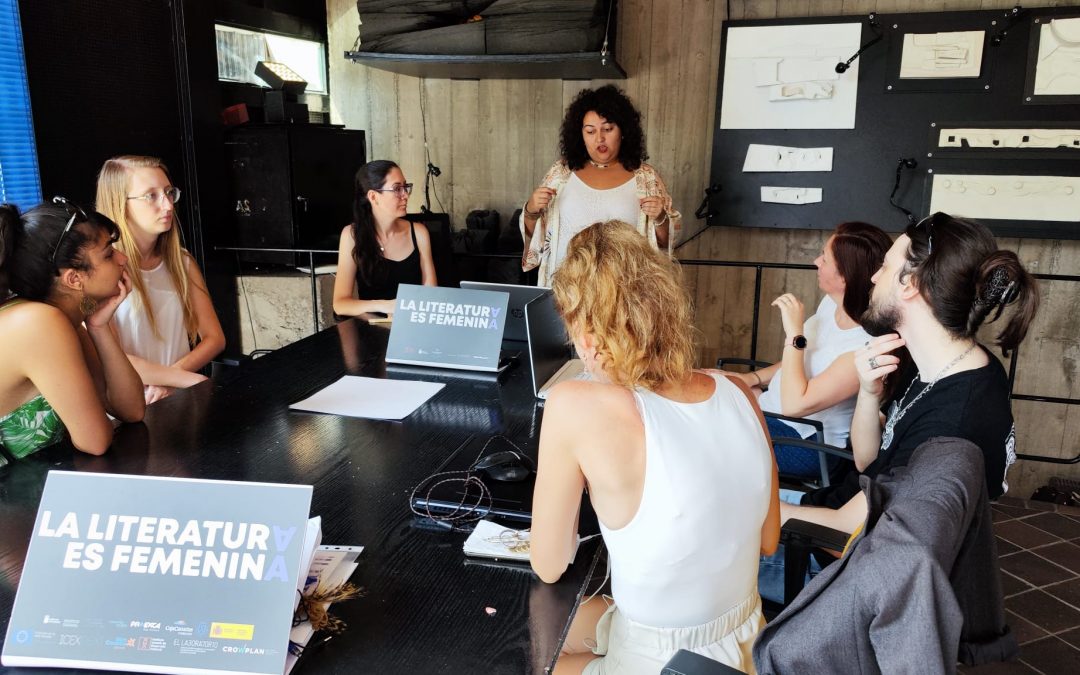
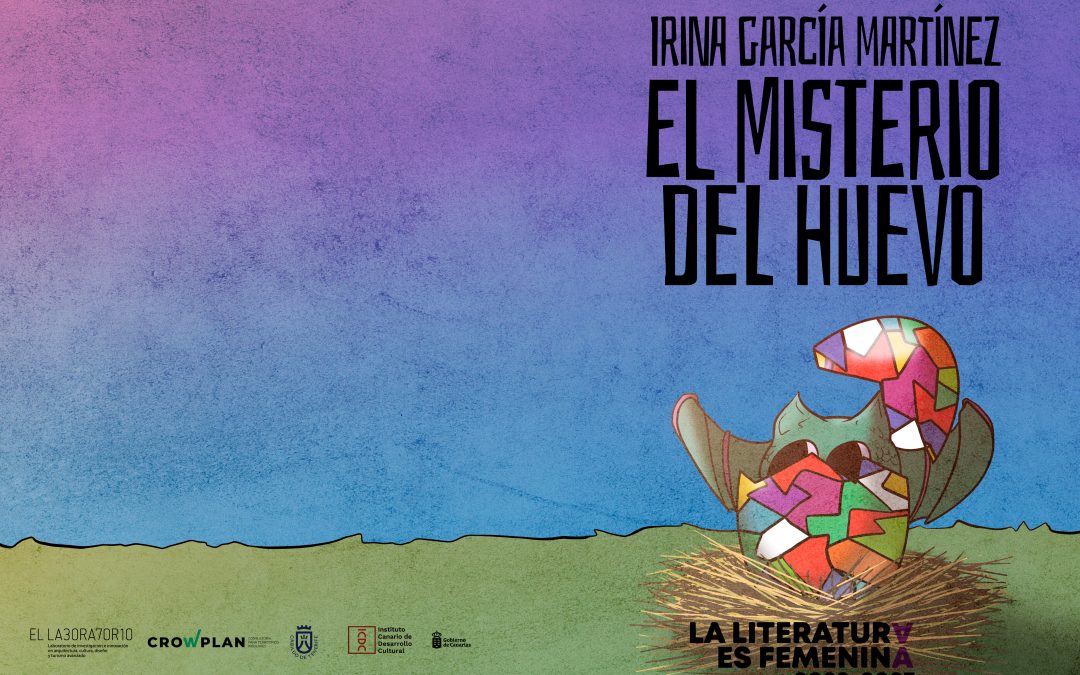

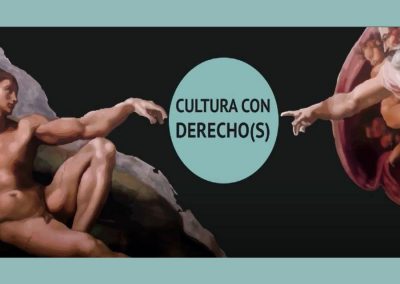
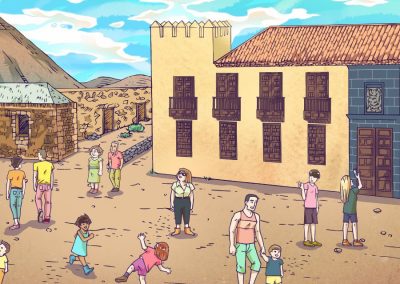

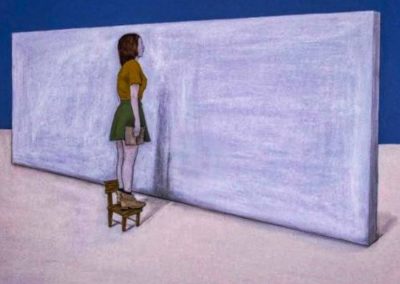
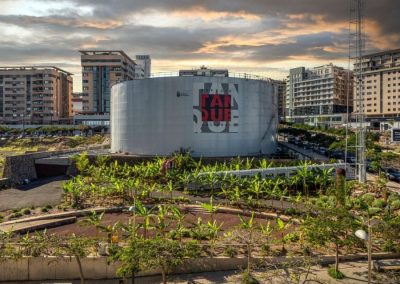
0 comentarios